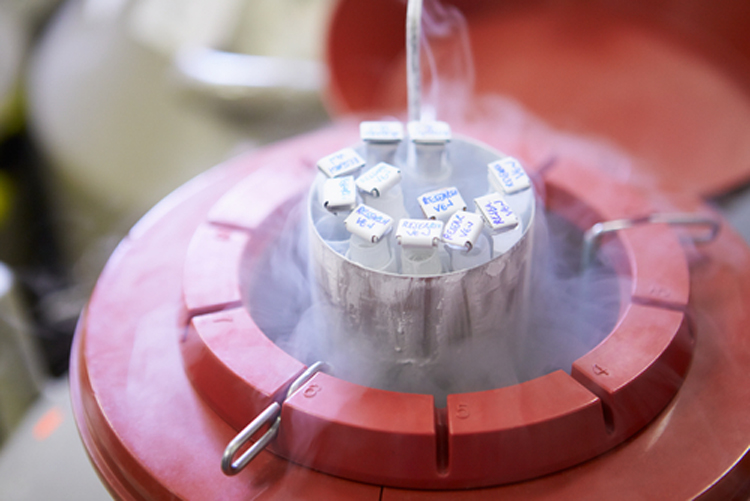Parents obtain order to preserve sperm of cadet killed in skiing incident

Photo by Monkey Business Images/Shutterstock.com.
The parents of a West Point, New York, cadet who died in a skiing incident have obtained an order for the preservation of his sperm.
A New York judge, John Colangelo of Westchester County, granted the parents’ request March 1 and directed that the sperm be held in storage until further order, report the New York Times, the Associated Press, the Rockland/Westchester Journal News and the Washington Post. The next court hearing in the case is scheduled for March 21.
The cadet, 21-year-old Peter Zhu, was declared brain-dead Feb. 27, four days after the skiing incident at the Victor Constant Ski Area near the West Point military academy. He was kept alive at Westchester Medical Center until March 1 to allow the harvesting of his organs for donation. Colangelo granted the parents’ request to preserve the sperm hours after the parents had sought it.
Zhu’s parents said in court papers that their son had dreamed of having five children. “We are desperate to have a small piece of Peter that might live on and continue to spread the joy and happiness that Peter bought to all of our lives,” their legal filing said.
The parents, Yongmin and Monica Zhu, also said they wanted to preserve the sperm because their son was the only male child in his family who could pass down the family name.
According to the Associated Press, the first documented retrieval of sperm from a person after his death was reported in 1980. The first baby conceived from such a procedure was born in 1999.
Usually spouses request the sperm, but some parents also have done so. The Associated Press cites the case of a man killed in a bar fight whose mother obtained permission for sperm retrieval in 2009.
One set of ethics guidelines says posthumous retrieval of sperm or an embryo is justifiable if there is written documentation that the deceased person had authorized the procedure. The guidelines were issued in 2018 by the Ethics Committee of the American Society for Reproductive Medicine.
If there is no written document, medical programs willing to perform such procedures should do so only if requested by the surviving spouse or partner, the guidelines say.
The guidelines differentiate between a request by a surviving spouse or partner and a surviving parent. “In the case of a surviving parent, no joint reproductive effort can ever be said to have existed,” the guidelines say. “Nor do the desires of the parents give them any ethical claim to their child’s gametes.”
State laws may vary on whether posthumous retrieval is permissible, the ethics guidelines say. And state laws vary on whether posthumously conceived children are legally recognized as offspring of the deceased.



